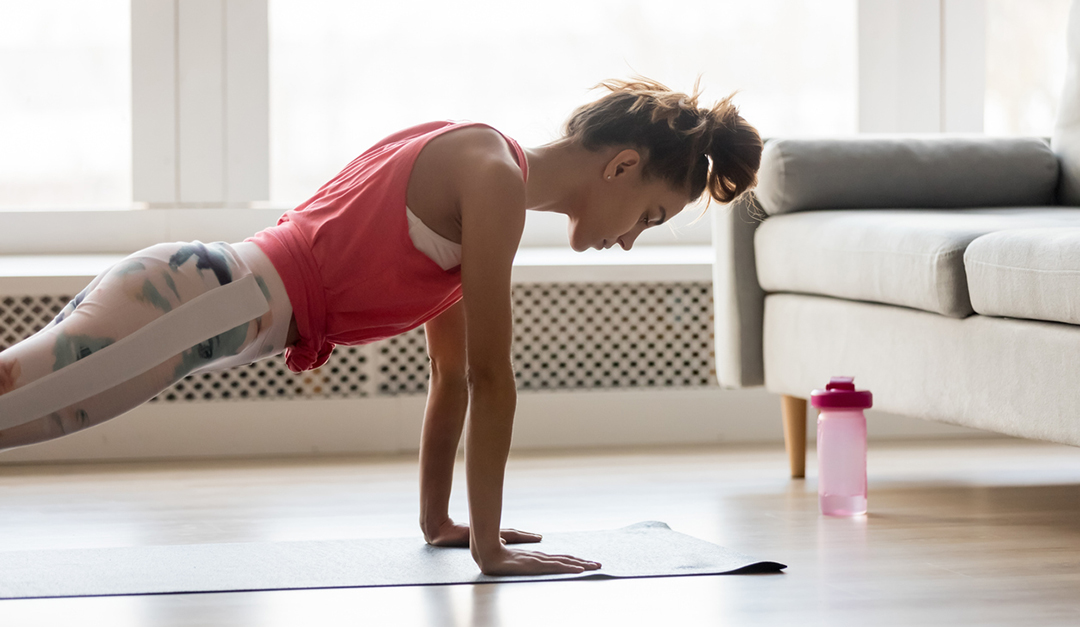(TNS)—The COVID-19 quarantine has left our routines in shambles, including our exercise routines. Without the structure provided by a daily schedule, it’s easy to have workout sessions fall by the wayside.
Consider the office worker who normally unwinds from a long day of staring at a computer screen by swinging past the gym on their way home to jump on an elliptical machine or take a yoga class. But when working at home, there are many other things that provide escape. You can catch up with a TV show you missed. You can play tug of war with the dog. Or you can just veg out.
So how do we keep motivated to exercise when plopping on the couch and eating ice cream is so tantalizing?
For starters, give up the notion that the inspiration to exercise is going to sweep over you like a sweaty tsunami.
“Stop waiting for or looking for a ‘feeling’ of motivation,” said Tom Nikkola, vice president of nutrition and virtual training at Life Time. “Like many other feelings, feeling motivated is something that comes and goes.”
“Exercise,” he said “needs to be a nonnegotiable if we want to stick with it. That’s especially the case right now for those of us sheltering in place. We’re surrounded by the comforts of home, and if exercise isn’t a nonnegotiable, we’ll talk ourselves out of it.
“We don’t need motivation when exercise is a nonnegotiable.”
One of the best ways to create an exercise mandate is to make an appointment with yourself, said Jennifer Menk, senior director of Health and Well-Being for the YMCA of the Greater Twin Cities.
“You should be very intentional about it,” she said. “You should dedicate time in your schedule for it. Schedule a workout just like you schedule a meeting. And if you can, do it the same time every day. It’s important to be consistent.”
It also helps to be consistent in where you work out.
“If it’s possible, you should set up an exercise area,” Menk said. “It doesn’t have to be a big area. Just a place where you can say, ‘This is where I do stretches’ or ‘This is where I jump rope.'”
During the quarantine, the vast majority of fitness centers are offering online training sessions (some require club membership, but others are open to everyone). Offerings cover the gamut from strenuous boot camps to soothing meditation sessions. Both Nikkola and Menk highly recommend them.
“You don’t feel so alone,” Menk said. “You can tell who else is there. There can be 40 or more of us there.”
This is motivating for people who enjoy the social aspect of workout classes.
“You get energized when you’re around other people actively pursuing health and fitness,” Nikkola said. “Nothing is as effective as that live community. However, that’s not possible for most of us right now. For now, connecting with others online who are committed to health and fitness helps you shape your thinking and behavior.
“One other benefit of finding an online health and fitness community is that the conversations tend to be more positive. Where there’s so much negativity and divisiveness online, pursuing fitness has a unifying effect on us.”
A classic piece of motivational advice is to have a workout partner whose presence makes you less likely to skip a session. Social distancing makes that difficult, but there are workarounds.
“You can have an accountability partner,” Menk said. “This is someone you can check in with” to report when you have worked out. And if you like a little challenge, you can compete to see who works out more.
If you lack discipline, it’s helpful to find a partner who won’t buy lame excuses.
“If you have a tendency to make poor health choices, you need someone to call you out on it with a certain level of candor,” Nikkola said. “It doesn’t feel good, but when you have someone who won’t let you lean on your excuses, you’ll be more likely to stop leaning on them.”
Many of the motivational steps that worked pre-quarantine still can be effective: Vary your exercise routine to avoid boredom. Keep a workout log (“What is tracked is done,” Menk said). Set a series of smaller, achievable goals instead of a big, pie-in-the-sky objective. And speaking of pie, “Earn the food you eat,” Nikkola said.
Need one more incentive? With all the emotional turmoil that has come with the COVID-19 pandemic, working out is more important than ever.
Exercise relieves stress and anxiety, Menk said. “There’s no doubt about it—you benefit mentally as much or even more than you do physically.”
©2020 Star Tribune
Distributed by Tribune Content Agency, LLC











